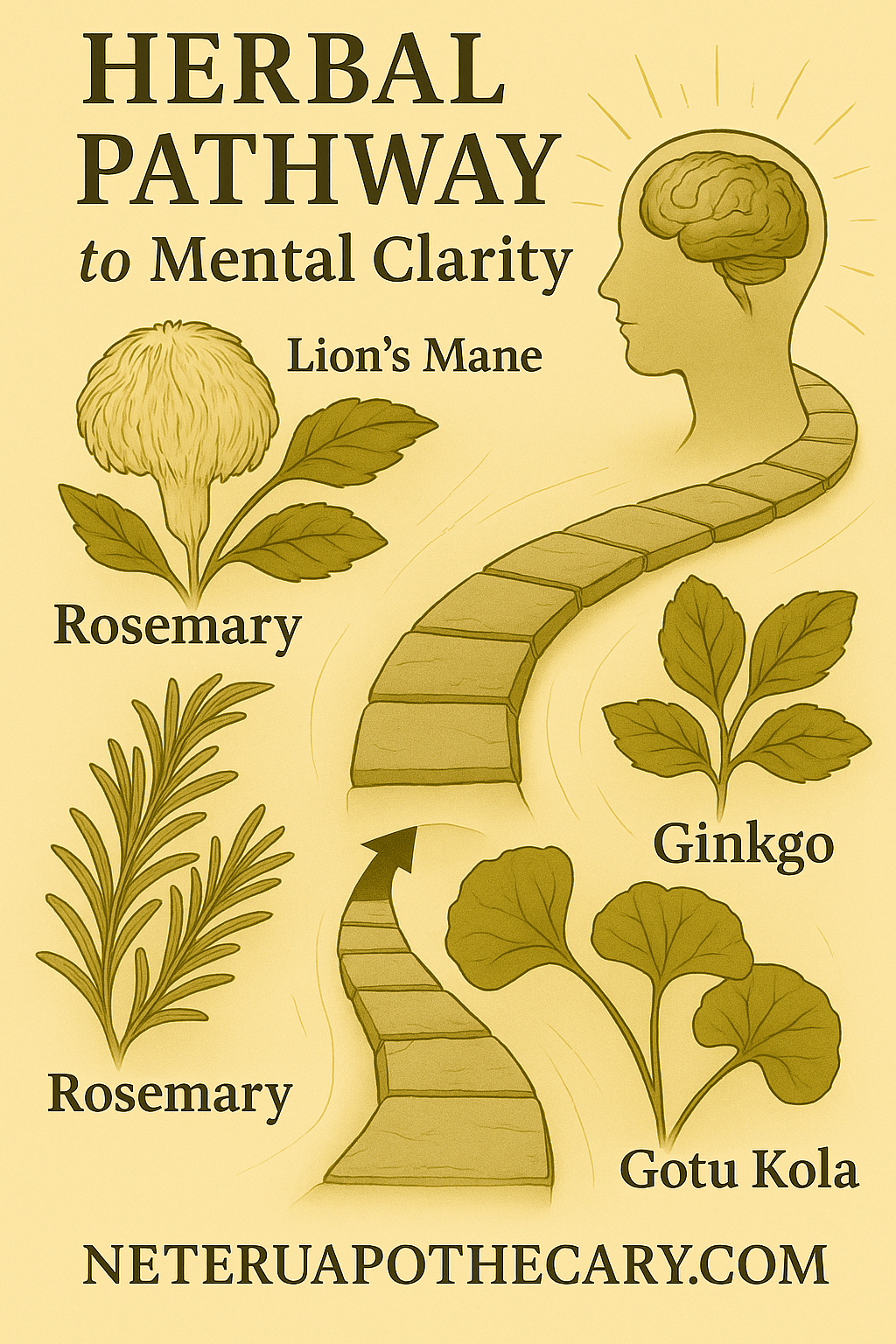Introduction
Modern science has confirmed what many traditions intuited: the gut and the brain are not separate worlds but intimate partners. This partnership, called the gut-brain axis, is a living dialogue carried through nerves, immune signals, and microbial whispers. Herbs, long revered as both food and medicine, are among the most skillful mediators of this axis. They soothe the stomach when thoughts are turbulent, brighten the mind when digestion falters, and remind us that clarity begins in the belly.
In this article, we explore the herbs that walk these pathways, supporting the microbiome, calming inflammation, and lifting the spirit through the wisdom of connection.
The Gut as the “Second Brain”
Neuroscientists call the enteric nervous system the “second brain.” With over 100 million neurons, the gut generates its own impulses, produces neurotransmitters like serotonin, and communicates constantly with the central nervous system. When digestion suffers, mood often follows; when stress surges, the stomach tightens.
This two-way street means that herbs affecting digestion can also transform mental state, and herbs known for uplifting the mind can ease the gut.
Herbal Allies of the Gut–Brain Axis
Chamomile (Matricaria recutita)
Chamomile is a gentle grandmother, cradling both stomach and mind. She reduces digestive spasms, calms the vagus nerve, and eases anxiety. Her sweetness reminds us that tenderness is medicine.
Peppermint (Mentha × piperita)
Peppermint is the cool, refreshing traveler. He relaxes intestinal muscles, helps food move smoothly, and clears mental fog. Peppermint’s menthol awakens clarity while soothing tension below.
Ginger (Zingiber officinale)
Ginger is a fiery guide who stokes digestive fire and circulation. She reduces nausea, stimulates serotonin release in the gut, and warms the spirit with confidence.
Turmeric (Curcuma longa)
Turmeric is a golden healer. He reduces inflammation that clouds both digestion and mood, protecting neurons as well as gut lining. Turmeric’s bright presence turns stagnation into flow.
Lemon Balm (Melissa officinalis)
Lemon Balm is a gentle joy-bringer. She reduces stress-induced digestive upsets, calms the nervous system, and brightens the heart. With her, gut and mood find harmony.
How Herbs Shape the Microbiome
The microbiome, trillions of microbes in the gut, shapes everything from immune function to emotional balance. Herbs act as prebiotics (feeding beneficial microbes), antimicrobials (balancing overgrowth), or modulators that encourage diversity.
· Chamomile supports Lactobacillus growth.
· Turmeric strengthens microbial diversity while lowering inflammatory strains.
· Ginger and Peppermint maintain microbial balance through mild antimicrobial effects.
Thus, herbs help create a microbial community that reflects resilience, clarity, and harmony.
The Emotional Impact of Herbal Care
When we take herbs for digestion, we often find that our mood lightens. This is not a coincidence: serotonin, dopamine, and other neurotransmitters produced in the gut flow upward to the brain.
· Chamomile tea eases anxious thoughts at night.
· Ginger warms the belly and lifts low spirits.
· Lemon Balm clears the fog of tension and invites gentle optimism.
By caring for the gut, these herbs indirectly tend the mind, a holistic reciprocity.
Conclusion
The gut–brain axis is not just a scientific discovery; it is a reminder of wholeness. Herbs like Chamomile, Peppermint, Ginger, Turmeric, and Lemon Balm act as guides along this two-way street, offering balance, clarity, and joy. They teach us that the path to a clear mind begins with a calm, nourished belly.
👉 Schedule a Consultation
👉 Explore Our Products
👉 Visit Our Website
References & Further Reading
1. Carabotti M, Scirocco A, Maselli MA, Severi C. The gut–brain axis: interactions between enteric microbiota, central and enteric nervous systems. Ann Gastroenterol. Link
2. Srivastava JK, Shankar E, Gupta S. Chamomile: A herbal medicine of the past with bright future. Mol Med Report. Link
3. Nikkhah Bodagh M, Maleki I, Hekmatdoost A. Ginger in gastrointestinal disorders: A systematic review. World J Gastroenterol. Link

